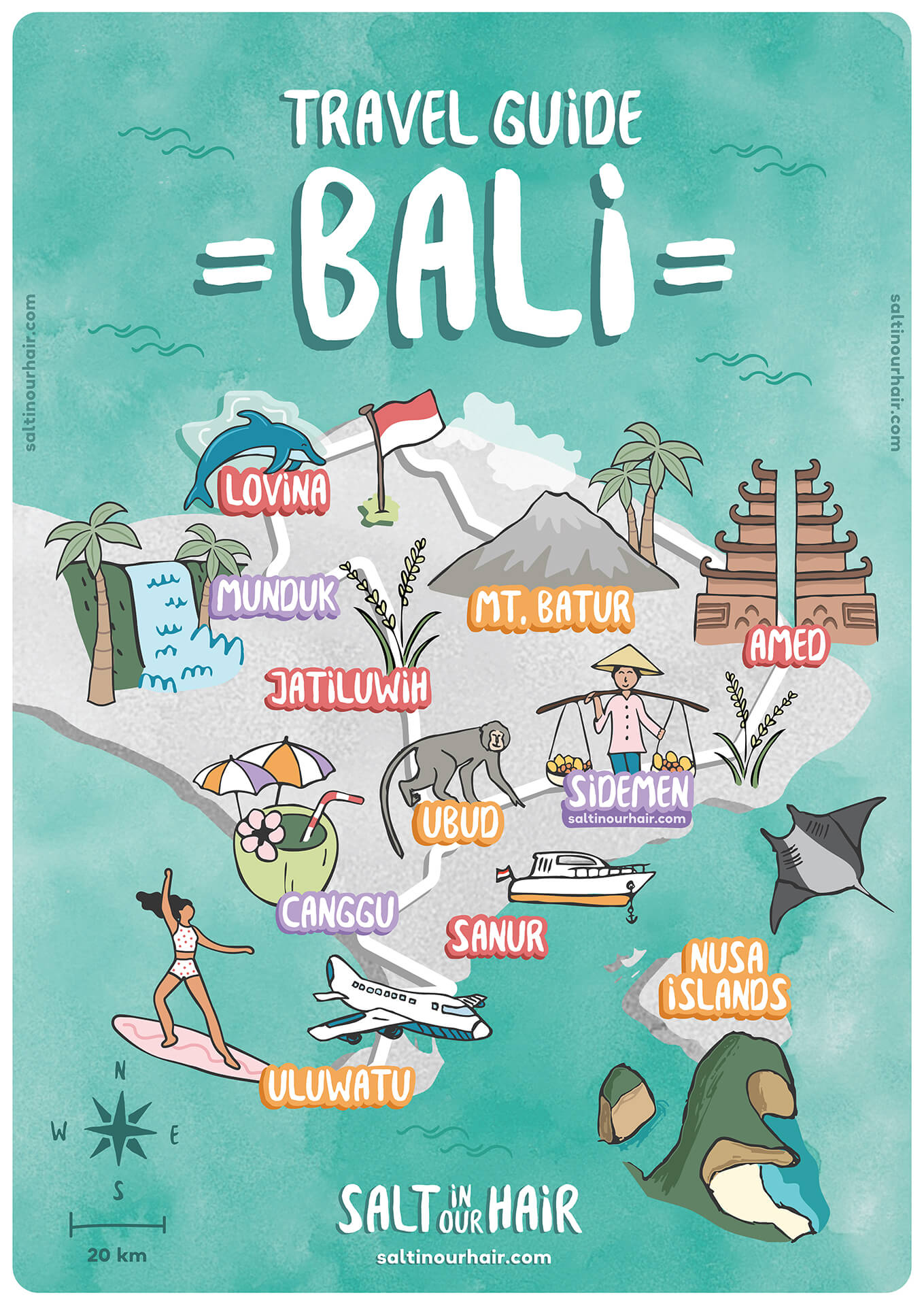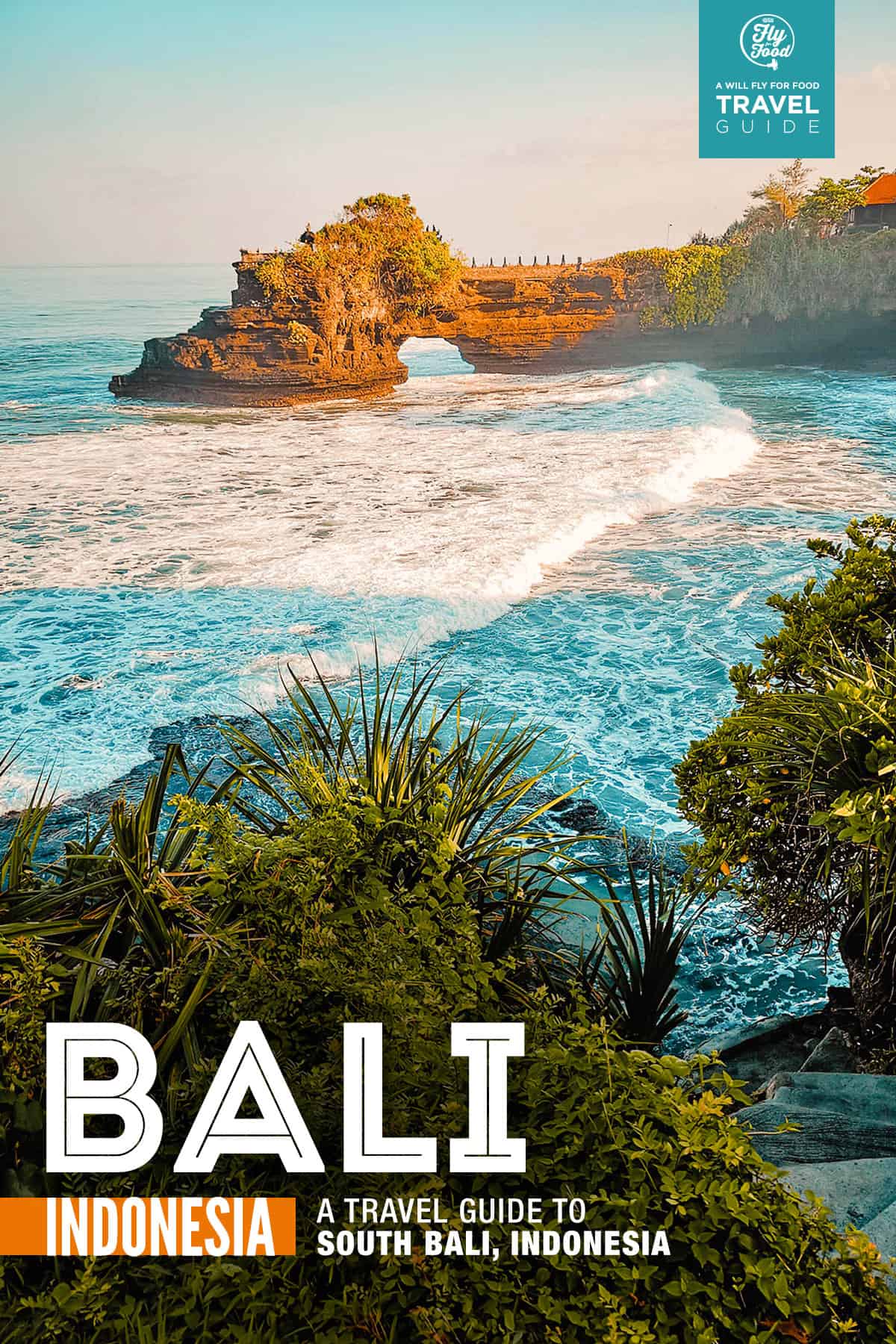
Bali, the "Island of Gods," is more than just a tropical paradise; it’s a vibrant tapestry woven with ancient traditions, stunning natural beauty, and a welcoming culture that captivates every visitor. From the emerald rice paddies cascading down volcanic slopes to the turquoise waters lapping at pristine beaches, Bali offers an unforgettable experience for every type of traveler. This comprehensive guide will navigate you through the island’s rich history, iconic attractions, practical travel tips, culinary delights, and essential transportation information, ensuring you make the most of your Balinese adventure.
A Glimpse into the Past: History and Culture
Bali’s history is deeply intertwined with Hinduism, which arrived from Java in the 14th century. This spiritual influence is evident in the island’s intricate temples, elaborate ceremonies, and the pervasive sense of serenity that permeates daily life. The Balinese people, known for their artistic talents, developed unique forms of dance, music, and craftsmanship, all reflecting their deep connection to the divine.
Related Articles about Bali: A Traveler’s Guide to the Island of Gods:
- Seychelles: An Archipelago of Unforgettable Allure
- Croatia: A Jewel of the Adriatic – Unveiling the Top Things to Do
- Unveiling the Pearl of the Orient: A Comprehensive Guide to the Philippines
- Indonesia: A Journey Through the Archipelago of Wonders
- Switzerland: A Symphony of Peaks, Precision, and Pristine Beauty
Early History: Before the influence of Hinduism, Bali was inhabited by various indigenous groups. The arrival of the Majapahit Empire from Java in the 14th century marked a significant turning point. The empire introduced Hinduism and its cultural practices, shaping the island’s religious and artistic landscape.
Kingdoms and Conflicts: Over the centuries, Bali was ruled by various kingdoms, each leaving its mark on the island. The Gelgel dynasty held considerable power, followed by the Klungkung kingdom, which became the last stronghold of Balinese independence. In the 19th and early 20th centuries, the Dutch gradually gained control, leading to periods of resistance and conflict, including the infamous "Puputan" battles, where Balinese royals chose death over surrender.
Independence and Modern Bali: After Indonesian independence in 1945, Bali became part of the Republic of Indonesia. The island experienced rapid development, particularly in tourism, transforming it into the world-renowned destination it is today. While embracing modernity, Bali has managed to preserve its rich cultural heritage, making it a unique and captivating destination.
The Pillars of Balinese Culture:
- Hinduism: Balinese Hinduism is a unique blend of Hinduism, indigenous beliefs, and animistic practices. The Tri Hita Karana philosophy, emphasizing harmony between humans, nature, and the divine, guides daily life.
- Temples (Pura): Temples are the heart of Balinese spiritual life. They range from small family shrines to grand complexes like Besakih Temple, the "Mother Temple" of Bali.
- Ceremonies and Festivals: Bali is renowned for its vibrant ceremonies and festivals, which are held throughout the year. These events often involve elaborate processions, traditional dances, and offerings to the gods.
- Art and Crafts: Balinese art is world-famous, encompassing intricate wood carvings, vibrant paintings, stunning textiles (batik and ikat), and exquisite silverwork.
- Gamelan Music and Dance: The rhythmic sounds of gamelan orchestras and the graceful movements of Balinese dancers are integral parts of the island’s cultural identity.
Exploring the Treasures: Main Attractions
Bali boasts a diverse array of attractions, catering to every interest. From sun-drenched beaches to lush rice terraces and ancient temples, here are some must-see destinations:
Beaches and Coastal Delights:
- Kuta Beach: Famous for its surf breaks and vibrant nightlife, Kuta is a popular destination for beginners and experienced surfers alike.
- Seminyak: Known for its upscale resorts, trendy restaurants, and chic boutiques, Seminyak offers a more sophisticated beach experience.
- Canggu: A surfer’s paradise with a laid-back atmosphere, Canggu is known for its black sand beaches, rice paddies, and vibrant cafe scene.
- Uluwatu: Home to dramatic cliffs, stunning sunsets, and the iconic Uluwatu Temple, perched on a cliff edge overlooking the Indian Ocean.
- Nusa Dua: A more secluded area with pristine beaches, luxury resorts, and calm waters, perfect for families and relaxation.
- Sanur: A tranquil beach town with calm waters, ideal for swimming, snorkeling, and family holidays.
Temples and Spiritual Sanctuaries:
- Tanah Lot Temple: A stunning temple perched on a rocky outcrop in the ocean, especially beautiful at sunset.
- Uluwatu Temple: A cliffside temple with breathtaking views and traditional Kecak fire dance performances at sunset.
- Besakih Temple (Mother Temple): The largest and holiest temple in Bali, located on the slopes of Mount Agung.
- Tirta Empul Temple: Famous for its holy spring water, where visitors can participate in a purification ritual.
- Ulun Danu Beratan Temple: A picturesque temple located on the shores of Lake Beratan, surrounded by stunning mountain scenery.
Natural Wonders and Adventures:
- Mount Agung: The highest volcano in Bali, offering challenging treks and panoramic views (check for safety updates regarding volcanic activity).
- Mount Batur: A popular hiking destination for sunrise views over the volcanic landscape and Lake Batur.
- Tegalalang Rice Terraces: A UNESCO World Heritage Site with stunning rice paddy views, perfect for photography and leisurely walks.
- Sekumpul Waterfalls: A series of breathtaking waterfalls hidden in a lush jungle setting.
- Nusa Islands (Nusa Lembongan, Nusa Ceningan, Nusa Penida): Islands just off the coast of Bali, offering stunning beaches, snorkeling, diving, and dramatic cliffs.
Travel Tips for a Seamless Bali Experience:
Best Time to Visit:
- Dry Season (April to October): This is the peak season, offering the best weather with sunny skies, low humidity, and minimal rainfall. Expect higher prices and more crowds.
- Shoulder Season (March, April, and October, November): These months offer a good balance of pleasant weather, fewer crowds, and potentially lower prices.
- Wet Season (November to March): Expect higher humidity, occasional rain showers, and potentially rough seas. Prices are generally lower, and the landscapes are lush and green.
Visa and Entry Requirements:
- Check the latest visa requirements based on your nationality. Many nationalities can enter Indonesia visa-free for tourism purposes for a limited stay.
- Ensure your passport is valid for at least six months beyond your intended stay.
- Be aware of any entry restrictions or health requirements, such as COVID-19 related protocols.
Currency and Money Matters:
- The Indonesian Rupiah (IDR) is the local currency.
- ATMs are widely available in tourist areas.
- Credit cards are accepted in many establishments, but it’s advisable to carry cash, especially in smaller shops and markets.
- Bargaining is common in markets, but be respectful and avoid aggressive negotiation.
Language:
- Bahasa Indonesia is the national language.
- Balinese is the local language.
- English is widely spoken in tourist areas.
Health and Safety:
- Consult your doctor about necessary vaccinations and health precautions before your trip.
- Drink bottled water only.
- Be aware of traffic safety, especially when riding scooters.
- Protect yourself from the sun by wearing sunscreen, a hat, and sunglasses.
- Be mindful of local customs and dress modestly when visiting temples.
- Be aware of potential scams and petty theft.
- Stay informed about any natural disaster warnings, such as volcanic activity or earthquakes.
Accommodation Options: Where to Stay
Bali offers a diverse range of accommodation options to suit every budget and preference.
- Luxury Resorts: Found in areas like Seminyak, Nusa Dua, and Ubud, these resorts offer world-class amenities, stunning views, and impeccable service.
- Boutique Hotels: Located in various areas, these hotels offer unique character, personalized service, and stylish accommodations.
- Villas: Private villas are a popular choice, offering spacious accommodations, private pools, and a more secluded experience.
- Guesthouses and Homestays: Budget-friendly options offering a more authentic cultural experience, often run by local families.
- Hostels: Perfect for backpackers and budget travelers, hostels offer dorm rooms and shared facilities.
Nearby Hotels (Examples):
- The Ritz-Carlton, Bali (Nusa Dua): Luxury beachfront resort with stunning ocean views and exceptional service.
- Mulia Resort & Villas Nusa Dua (Nusa Dua): Large resort with multiple pools, restaurants, and activities.
- The Oberoi, Bali (Seminyak): Luxurious beachfront hotel with private villas and impeccable service.
- Four Seasons Resort Bali at Sayan (Ubud): Luxurious resort nestled in the Ayung River valley, offering a tranquil retreat.
- The Samaya Ubud (Ubud): Boutique hotel with private villas overlooking the Ayung River.
- Hotel Tugu Bali (Canggu): Unique hotel with antique-filled rooms and a relaxed atmosphere.
Culinary Delights: A Taste of Bali
Balinese cuisine is a vibrant explosion of flavors, incorporating fresh ingredients, aromatic spices, and unique cooking techniques.
Must-Try Dishes:
- Nasi Goreng: Indonesia’s national dish, consisting of fried rice with vegetables, meat (chicken, pork, or seafood), and a fried egg.
- Mie Goreng: Similar to Nasi Goreng, but made with noodles instead of rice.
- Babi Guling: Roasted suckling pig, a Balinese specialty, often served with rice, vegetables, and crispy skin.
- Satay Lilit: Minced meat (usually chicken, pork, or seafood) seasoned with spices and wrapped around skewers, then grilled.
- Lawar: A traditional Balinese dish made with minced meat, vegetables, coconut, and spices.
- Gado-Gado: A salad with mixed vegetables, tofu, tempeh, rice cakes, and a peanut sauce dressing.
- Sate (Satay): Grilled meat skewers served with peanut sauce or soy sauce.
- Ayam Betutu: Slow-cooked chicken or duck marinated in Balinese spices.
- Es Jeruk: A refreshing drink made with fresh orange juice.
- Fresh Fruit Juices: Enjoy a variety of fresh fruit juices, such as mango, pineapple, and watermelon.
Where to Eat:
- Warungs: Small, family-run restaurants offering authentic and affordable Balinese cuisine.
- Restaurants: A wide range of restaurants catering to various tastes and budgets, from casual eateries to fine dining establishments.
- Night Markets: Explore local night markets for a variety of street food options.
- Cooking Classes: Learn to prepare Balinese dishes by taking a cooking class.
Getting Around: Transportation Options
- Taxis: Bluebird taxis are generally reliable and use a meter.
- Ride-Hailing Apps (Grab, Gojek): Convenient and affordable for transportation and food delivery.
- Motorbike/Scooter Rental: A popular way to explore the island, but be aware of traffic safety and ensure you have a valid international driving permit.
- Car Rental: Recommended if you prefer a more comfortable and spacious option. Driving can be challenging due to traffic.
- Private Drivers: Hire a private driver for a day or longer to explore the island at your own pace.
- Public Transportation (Bemos): Local minibuses, but they can be crowded and uncomfortable.
- Boats: Ferry services connect Bali to the Nusa Islands and other islands.
Conclusion: Embracing the Spirit of Bali
Bali offers a truly transformative travel experience, where ancient traditions blend seamlessly with modern comforts. By understanding its history, exploring its diverse attractions, embracing its culture, and following these travel tips, you can create unforgettable memories on the "Island of Gods." Embrace the spirit of Bali, and allow its beauty, spirituality, and warmth to captivate your senses. Selamat jalan! (Safe travels!)








